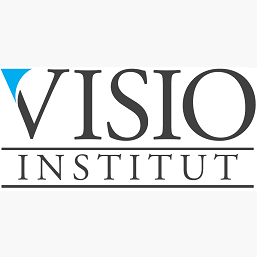Traditionally a good performer in the Nanny State Index, Slovakia is one of the few countries to have attempted a sliver of liberalisation since the last edition was published. In August 2022, it allowed spirits to be advertised on television after 8 PM (the previous watershed was 10 PM). Beer and wine adverts can be shown on television at any time of day.
It is only a minor cause for celebration, but deregulation is so rare that libertarians must cheer it when they can. In previous years, we have applauded Slovakia for relaxing drunk-driving legislation to allow cyclists to consume one pint of beer before they ride their bikes and for legalising domestic distilling. Since January 2019, Slovakians have been permitted to produce up to 25 litres of spirits (containing up to 86 per cent ethyl alcohol) in their own home each year so long as they use homegrown fruit and register with the government. These drinks cannot be sold to others.
There is no duty on still wine in Slovakia, although sparkling wine is taxed at €0.80 per litre. There is currently no excise tax on e-cigarette fluid – Slovakia’s finance minister rejected a tax on vaping products in October 2020 – and there is no sugar tax. Taxes on beer and spirits are not particularly high by European standards, but sharp hikes in tobacco duty in recent years have stung smokers.
The Slovakian smoking ban allows owners of bars and restaurants to accommodate smokers in separate sections. Cigarettes cannot be bought from machines, but there is no display ban or plain packaging.
Slovakia’s approach to social freedoms is sounder than most, but it is far from perfect. Although smoking is only partially banned indoors, vaping is prohibited wherever smoking is banned. E-cigarette advertising and sponsorship are both banned, as are cross-border sales.
With thanks to Radovan Durana, Institute of Economic and Social Studies
About
The Nanny State Index (NSI) is a league table of the worst places in Europe to eat, drink, smoke and vape. The initiative was launched in March 2016 and was a media hit right across Europe. It is masterminded and led by IEA’s Christopher Snowdon with partners from all over Europe.
Enquiries: info@epicenternetwork.eu
Download Publication
Previous versions: 2021, 2019, 2017
Categories
About the Editor
Christopher Snowdon is the head of Lifestyle Economics at the Institute of Economic Affairs. His research focuses on lifestyle freedoms, prohibition and policy-based evidence. He is a regular contributor to the Spectator, Telegraph and Spiked and often appears on TV and radio discussing social and economic issues.
Snowdon’s work encompasses a diverse range of topics including ‘sin taxes’, state funding of charities, happiness economics, ‘public health’ regulation, gambling and the black market. Recent publications include ‘Drinking, Fast and Slow’, ‘The Proof of the Pudding: Denmark’s Fat Tax Fiasco’, ‘A Safer Bet’, and ‘You Had One Job’. He is also the author of ‘Killjoys’ (2017), ‘Selfishness, Greed and Capitalism’ (2015), ‘The Art of Suppression’ (2011), ‘The Spirit Level Delusion’ (2010), ‘Velvet Glove, Iron Fist’ (2009).
Slovakia 2023
Traditionally a good performer in the Nanny State Index, Slovakia is one of the few countries to have attempted a sliver of liberalisation since the last edition was published. In August 2022, it allowed spirits to be advertised on television after 8 PM (the previous watershed was 10 PM). Beer and wine adverts can be shown on television at any time of day.
It is only a minor cause for celebration, but deregulation is so rare that libertarians must cheer it when they can. In previous years, we have applauded Slovakia for relaxing drunk-driving legislation to allow cyclists to consume one pint of beer before they ride their bikes and for legalising domestic distilling. Since January 2019, Slovakians have been permitted to produce up to 25 litres of spirits (containing up to 86 per cent ethyl alcohol) in their own home each year so long as they use homegrown fruit and register with the government. These drinks cannot be sold to others.
There is no duty on still wine in Slovakia, although sparkling wine is taxed at €0.80 per litre. There is currently no excise tax on e-cigarette fluid – Slovakia’s finance minister rejected a tax on vaping products in October 2020 – and there is no sugar tax. Taxes on beer and spirits are not particularly high by European standards, but sharp hikes in tobacco duty in recent years have stung smokers.
The Slovakian smoking ban allows owners of bars and restaurants to accommodate smokers in separate sections. Cigarettes cannot be bought from machines, but there is no display ban or plain packaging.
Slovakia’s approach to social freedoms is sounder than most, but it is far from perfect. Although smoking is only partially banned indoors, vaping is prohibited wherever smoking is banned. E-cigarette advertising and sponsorship are both banned, as are cross-border sales.
With thanks to Radovan Durana, Institute of Economic and Social Studies
 Austria
Austria Belgium
Belgium Bulgaria
Bulgaria Croatia
Croatia Cyprus
Cyprus Czech Republic
Czech Republic Denmark
Denmark Estonia
Estonia Finland
Finland France
France Germany
Germany Greece
Greece Hungary
Hungary Ireland
Ireland Italy
Italy Latvia
Latvia Lithuania
Lithuania Luxembourg
Luxembourg Malta
Malta Netherlands
Netherlands Norway
Norway Poland
Poland Portugal
Portugal Romania
Romania Slovakia
Slovakia Slovenia
Slovenia Spain
Spain Sweden
Sweden Turkey
Turkey United Kingdom
United Kingdom
















